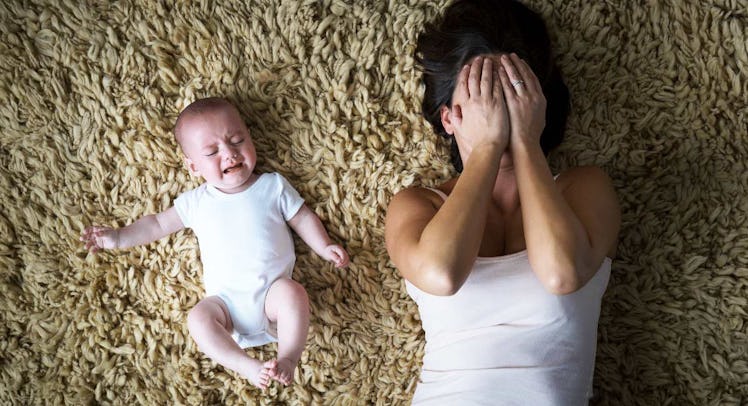Supportive dads could be the antidote for some of the negative effects of postpartum depression. Although children tend to suffer and families tend to experience less closeness when mothers are depressed, new research suggests that, when fathers step up and engage with their kids, maternal depression has less of an effect on family cohesion.
“This is the first longitudinal study to check father contribution in the context of chronic maternal depression,” coauthor Ruth Feldman of Bar Ilan University in Israel told Fatherly. “It shows that fathers have a buffering role on their children’s social-emotional development and on the family interactions.”
For the study, Feldman and her team collected data through questionnaires and home visits from 1,983 married or cohabiting women after they gave birth, and then followed up at six months, nine months, and six years. After six years, the researchers selected two cohorts: 46 mothers who had displayed symptoms of postpartum depression or were diagnosed with clinical depression, and 103 mothers who had no depressive symptoms to serve as controls.
Overall they found that depressed mothers displayed low sensitivity and high intrusiveness, causing their kids to suffer and withdraw from them. And when mothers were depressed, fathers were more likely to be depressed too, leading to a home rife with insensitive and intrusive behavior. But there was one exception to this trend—when fathers displayed high sensitivity and low intrusiveness, “children behaved differently in the family context, even when the depressed mothers were there,” Feldman says. “They developed mechanisms to deal with the depressed mother that are not related to withdrawal or disruptive behavior, the two typical behavioral styles in children of depressed moms.”
When it comes to maternal depression in general, Feldman says, more research is always necessary. But she suspects father-focused interventions are a promising place to start. “Interventions should empower fathers, highlight their critical role in this condition, and teach them specific skills on how to be sensitive, growth promoting dads,” she says.
